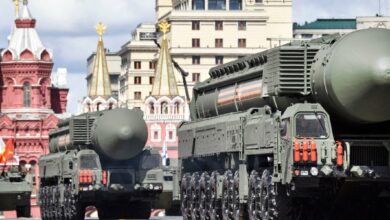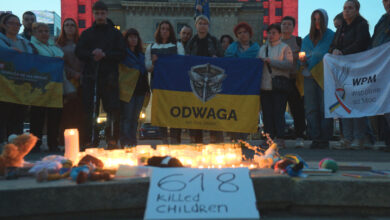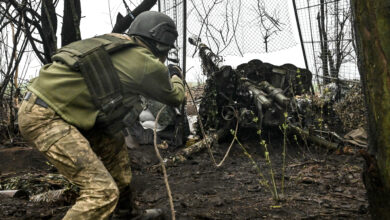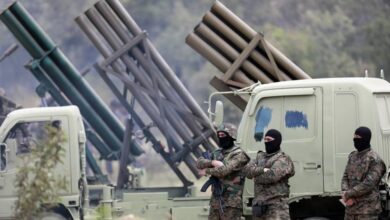The lower house of the Swiss parliament on Wednesday narrowly voted to back allowing the transfer of Swiss-made arms to Ukraine — but only under conditions extremely unlikely to materialize.
The National Council voted with 98 votes in favor, 96 against and two abstentions to push the government to allow the re-export of Swiss weaponry to Ukraine — currently banned under the country’s strict military neutrality laws.
The motion called for waiving the no re-export clauses of countries wishing to transfer Swiss-made arms to Ukrainian forces, but only if the United Nations Security Council first declares Russia’s war there illegal.
With Russia wielding veto powers on the Security Council, that is a very unlikely scenario.
The issue of Switzerland’s long tradition of neutrality has been hotly debated since Russia’s full-scale invasion of Ukraine in February 2022.
While the wealthy Alpine country, which is not a member of the European Union, has followed the bloc’s lead on sanctions targeting Moscow, it has so far shown less flexibility in its military neutrality.
Despite pressure from Kyiv and its allies, Switzerland has so far refused to allow countries that hold Swiss-made weaponry to re-export it to Ukraine.
To date, it has rejected explicit requests from Germany, Spain, and Denmark, pointing to its War Materiel Act, which bars all re-export if the recipient country is in an international armed conflict.
Wednesday’s lower house vote was on just one of a range of initiatives underway in parliament towards relaxing the re-export rules to make it possible for Swiss-made weaponry to be transferred by third countries to Ukraine.
Wednesday’s decision will still need to be approved in the upper house, the Council of States, which on Monday rejected a separate initiative that would have permitted the re-export of arms to specific democracies.
The process towards a final decision, with back-and-forth debates between the chambers and the government, followed by a probable referendum under Switzerland’s direct democracy system, is likely to take months.












